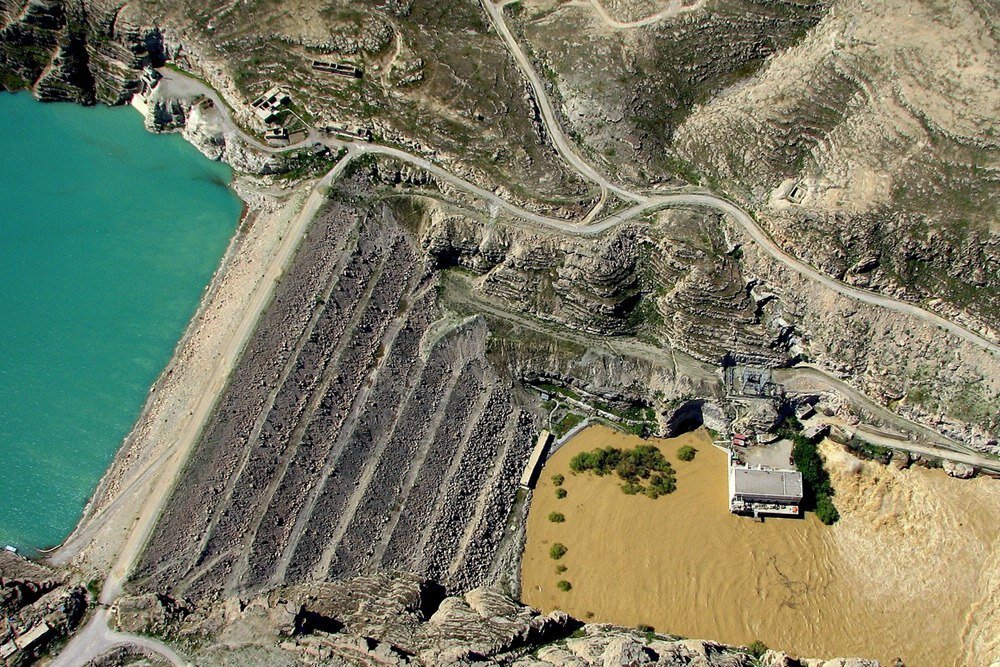Water Warning

TEHRAN – Relations between Iran and Afghanistan soured in recent days after the Taliban refused to respect Iran’s water rights in shared rivers.
The Taliban’s long-time procrastination in releasing Iran’s share from shared waters prompted Iranian President Raisi to issue a stern warning to Kabul, urging them to secure Iran’s rights or risk tensions with Iran.
In a weekend trip to the southeastern province of Sistan-Baluchistan, President Raisi said, “I want to tell the rulers of Afghanistan not to consider my words as normal, but to take them very seriously; I warn the officials and rulers of Afghanistan to give the rights of the people and the region of Sistan and Baluchistan immediately.”
Referring to some published claims that the dam built on Helmand does not have much water or that part of it is sediments, he stated, “Our experts should be given permission to investigate this issue as soon as possible, if our experts confirm this, very well, there is no problem; we have no dispute about the lack of water, but if there is water, this right should be given to the people of Sistan and Baluchistan and we will not allow the rights of the people to be lost in any way.”
The warning comes against a backdrop of severe drought hitting Sistan-Baluchistan province. Iranian officials said the lack of water in the province stems partly from Taliban’s unwillingness to implement a decades-old agreement between Tehran and Kabul that requires Afghanistan to honor Iran’s water rights.
Of course, the Iran-Afghanistan water disputes are older than the Taliban rule. The former U.S.-backed government of Afghanistan deliberately sought to withhold Iran’s water share. With help from the U.S., the former Afghan regime built many dams on rivers that ultimately flow into Iran with the aim of diverting their waters to other dry Afghan regions. The Kajaki and Kamalkhan dams are a case in point.
Former Afghan President Ashraf Ghani once openly said that Kabul won’t give water to Iran for free. “If you want water, then give us oil or things,” Ghani said.
The Western-backed government of Kabul has gone but its legacy strangely lives on. The Taliban, which fought against the Americans for two decades, is now following in their footsteps in terms of not living up to Afghanistan’s commitments regarding shared waters.
After President Raisi’s warning, the Taliban, instead of pouring oil on troubled waters, issued a statement that further inflamed tensions because it claimed that due to low precipitation, there are now additional waters behind the controversial dams, something that Iran took with a pinch of salt.
The Iranian foreign ministry said in a statement that the Taliban have not abided by Afghanistan’s obligations and not let Iranian experts to examine the drought claims.
“The declaration dated 18 May, 2023 by the Afghan side about the Helmand River water rights contains contradictory and incorrect information, and the Ministry of Foreign Affairs of the Islamic Republic of Iran strongly rejects it. The Helmand Treaty signed between Iran and Afghanistan, dated February 20, 1973 has clearly and unambiguously specified the Iranian side’s water rights from the Helmand River. This is a legal, objective and definite right, and Afghanistan is committed to providing the aforementioned right and not taking any action, which fully or partly strips Iran of its water rights, under Article 5 of the Treaty,” the statement said.
It added, “Although the Afghan rulers, in the past year and half, have repeatedly emphasized adherence to their obligations under the Treaty, in practice, they have failed to honor the obligations arising from the Treaty to provide the necessary cooperation in the release of the water flow and realization of Iran’s water rights, and to allow Iran access to its water share.”
The statement concluded, “Non-adherence to the Treaty and non-provision of Iran’s Helmand water rights on the part of Afghanistan and issuing political statements without practical action are not acceptable in any way. The Islamic Republic of Iran reserves the rights to take necessary measures and emphasizes the full responsibility of Afghanistan in this regard.”
Iranian Energy Minister Ali Akbar Mehrabian said the Kajaki dam contains enough water and Taliban officials have acknowledged that.
“Based on the president's emphasis, we are obliged to ensure the rights of the people, and the issue of the Helmand River claim is seriously on the agenda as an example of the rights of the people of Iran,” Mehrabian stated.
